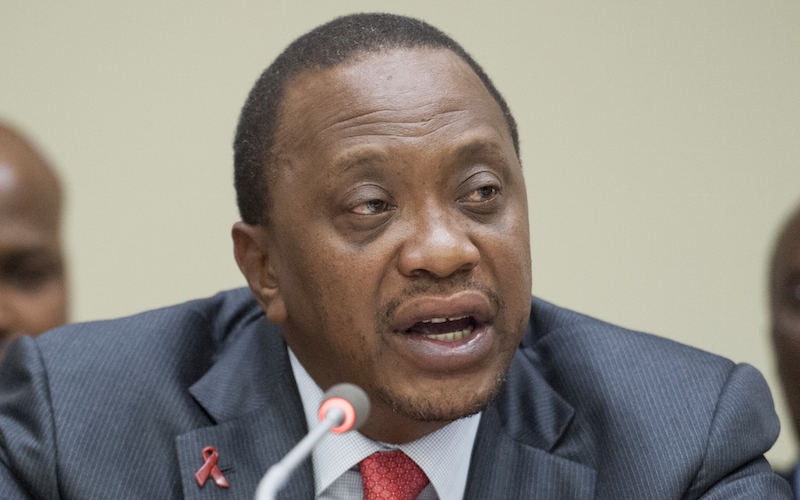
Why We Need the International Criminal Court
Earlier this year at the African Union (AU) summit, African leaders voted overwhelmingly in favor of a proposal to withdraw from the ICC. The project, spearheaded by Kenyan President Uhuru Kenyatta, was also backed by South Africa’s Jacob Zuma who threatened to pull South Africa from the ICC following a spat regarding his failure to arrest Sudan’s Omar al-Bashir despite a pending arrest warrant from the ICC. Al-Bashir has been able to travel freely between countries such as South Africa and Djibouti, despite their legal obligation to arrest him.
Indeed, African leaders have repeatedly accused the ICC of bias against the continent. The current African Union Chairman, Chadian President Idriss Deby stated in early February “Elsewhere in the world, many things happen, many flagrant violations of human rights, but nobody cares.” At face value, the criticism does hold water since ICC probes are currently underway in Kenya, Ivory Coast, Libya, Sudan, Democratic Republic of Congo, Central African Republic, Uganda, and Mali. Georgia is the sole outlier, an investigation into allegations of war crimes during the 2008 conflict with Russia being considered.
However, accusing the ICC of racism is callous to say the least. To begin with, many of the cases on the dock have been referred to the Court by African governments themselves, and were not cherry picked by some faceless clerk or bureaucrat.
What’s more, the Court’s most vocal opposition on the continent comes from a cast of unsavory characters such as Zimbabwe’s Robert Mugabe, Kenya’s Kenyatta, Equatorial Guinea’s Teodoro Obiang Nguema Mbasogo, not to mention Idriss Deby himself, accused by Amnesty International in 2013 of brutal repression and a marked failure to respect the human rights pledge he made after coming to power in 1990. Not quite the right messengers to carry forth the banner of human rights and racial equality.
Beyond the chatter oozing out of various Presidential Palaces, grassroots support for the ICC is high, with the court often providing victims of war crimes and politically motivated violence with their only hopes for real justice. Over the past two decades, Africa (especially North Africa and the Central Lakes Region) has disproportionately been the stage of ethnic cleansings, genocides, mass murders, and displacements at the hands of power-hungry leaders. Since political institutions and courts were the first victims of war, the ICC served as the sole institution capable of providing a credible justice mechanism.
But it’s not just about retribution for past crimes. The Court can also serve as a deterrent against future crimes by calling leaders out on potential abuses, as it has done with Djibouti’s Ismail Omar Guelleh. Human rights and opposition activists who have been subjected to violence in Djibouti have already turned to the ICC as a vehicle for serving justice. Guelleh’s previous flouting of the arrest order for al-Bashir proved internationally embarrassing, and attention from the Court would prove damaging for a regime as reliant on international investments as Djibouti.
It is crucial to remember that the ICC only has the authority to investigate and prosecute cases in countries that are “members of the court, countries that self-refer, or if the Security Council refers cases to the court.” As Harvard Law School’s Alex Whiting points out, “almost all the cases have come to the court because the country self-referred or the Security Council recommended…The court has ended up doing its cases in Africa because that’s where it has jurisdiction and because crimes have been committed there.”
A bit of history is also handy when considering accusations of bias against the ICC. The ICC is barely two decades old, and far from being the first international effort to prosecute war crimes. The first such efforts were the Nuremberg and Tokyo trials held between 1945 and 1948. After the end of the Cold War, tribunals such as the International Criminal Tribunal were also put in place to investigate crimes in former Yugoslavia. Over the 20th century then, most investigations have actually centered on Europe. What differentiates the ICC from previous efforts is that it is permanent. Unlike the tribunals that were established as a response to specific crimes in a specific conflict, the ICC was adopted by 120 States in 1998 when they agreed to the Rome Statute, which laid the legal foundations for establishing a permanent international criminal court. By the time the Rome Statute entered into force in 2002, however, only 60 counties had ratified it.
Which brings us to the root of the problem: the ICC has very limited jurisdiction. Currently 123 states are party to the statute. But major players such as the United States, Russia, China and India have not signed up. And while they themselves, as members of the Security Council (except India), can refer cases to the ICC, they cannot be investigated. Not only that, but the ICC is heavily dependent on the cooperation of member states to conduct its investigations. That’s what happened in 2014 when allegations of witness intimidation forced the ICC to abandon the case against none other than Uhuru Kenyatta, accused of fomenting post-election violence that left over 1,000 people dead.
But true justice cuts both ways, which is why as long as the permanent members of the Security Council refuse to sign the Rome Statute, the ICC’s legitimacy will not be restored. A wise leader would see past the preposterous charges levied at the ICC and acknowledge that the Court needs to be strengthened in order to fulfill its role as institution of last resort when national ones fail.

